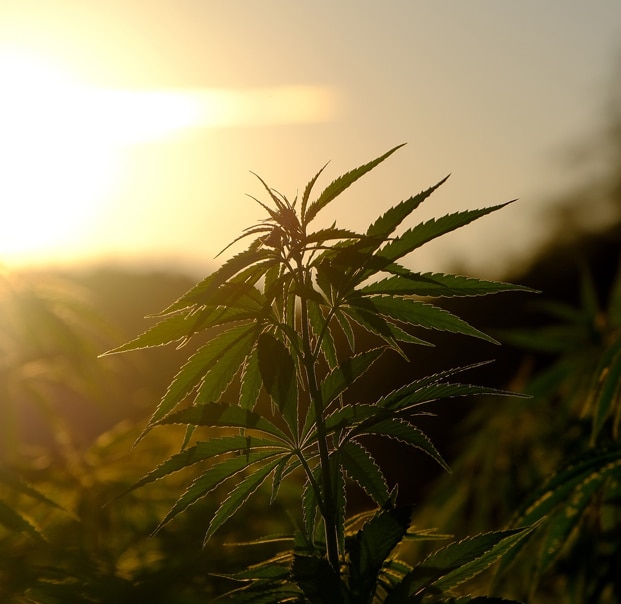Background
Since 2017, West Virginia has permitted the use of medical cannabis under Senate Bill 386, known as the West Virginia Medical Cannabis Act. The Act allows residents with certain medical conditions to use medical marijuana, regulated by the West Virginia Office of Medical Cannabis (OMC).
The West Virginia Department of Medical Cannabis oversees the licensing process for cannabis business operations.
Types of Cannabis Licenses in West Virginia
Cultivation Licenses
Permits for growing cannabis, with various tiers based on facility size and growing conditions.
Manufacturing Licenses
Allows for processing cannabis into various products, including extracts and edibles.
Retail Licenses
Enables the operation of dispensaries and delivery services for medical and/or recreational use.
Distribution Licenses
Required for transporting cannabis products between licensed facilities.
Cultivation Licenses
Grower licenses issued under medical program. Includes detailed security and facility plans.
Back to the TopManufacturing Licenses
Processor licenses required for concentrates and infused products.
Back to the TopHow to Obtain a Cannabis License in West Virginia?
Obtaining a cannabis license in West Virginia involves several steps, including demonstrating good moral character, financial backing, and the operational capability to adhere to state cannabis regulations.
Applicants must provide detailed information about their business plans, security measures, and compliance with state laws. The West Virginia Bureau of Health has set forth requirements for residency, moral character, and financial fitness, among others, for applicants.
For Cannabis Patients
A qualifying medical condition is necessary to obtain a medical marijuana card. Once approved, patients will receive a medical card (medical marijuana card), allowing them legal access to medical marijuana.
Payment and Fees
Note: Fee structures are subject to change. Consult the official West Virginia cannabis regulatory website for current fee schedules.
Application Fees
The application fee covers the initial costs associated with processing and reviewing cannabis business license submissions in West Virginia. These fees vary depending on the type of license and the size of the proposed operation. It’s essential to ensure all application materials are complete and accurate to avoid delays or additional costs.
License Fees
License fees are required to maintain compliance and secure operating privileges for cannabis businesses in West Virginia. These fees are determined based on the license type, such as retail, cultivation, or distribution, and are typically due annually. Staying current with license payments is crucial to avoid penalties or disruptions in business operations.
Remaining Compliant with West Virginia Regulations
Compliance involves maintaining effective control to prevent diversion, adhering to all applicable laws, and reporting any changes in facts or circumstances reflected in the license application. The state emphasizes security, tracking, recordkeeping, and surveillance systems for cannabis operations.
To ensure ongoing compliance, you must conduct business legally. This includes being mindful of selling your products to qualified consumers. In West Virginia, medical marijuana is legal for those with a medical marijuana card.
A medical cannabis recommendation from a qualified physician is necessary for obtaining medical marijuana. Providing medical records demonstrating a qualifying medical condition is crucial for the medical marijuana card application.
Note that only those with serious medical conditions, like post-traumatic stress disorder, are eligible for a medical marijuana card. Those facing financial difficulties may apply for a financial hardship waiver for their medical marijuana card.
Risk and Compliance Factors
The cannabis business in West Virginia involves navigating legal complexities and operational challenges, including maintaining compliance with evolving regulations and managing security and diversion prevention measures.
Legal References and Citations
Entering the medical cannabis industry in West Virginia requires careful planning and adherence to the state’s regulatory framework. Prospective licensees should stay informed on legislative updates and ensure all aspects of their operations comply with state guidelines.
Legal References and Citations
- West Virginia Medical Cannabis Act (Senate Bill 386)
- Office of Medical Cannabis (OMC) Regulations
Additional Resources
Risk and Compliance Factors From AlphaRoot
The cannabis industry, while burgeoning with opportunities, is not without its complexities and inherent risks. Understanding and mitigating these risks is crucial for long-term success. AlphaRoot, a prominent insurance and risk management firm specializing conduct business in the cannabis sector, sheds light on the key risk and compliance factors
1. Regulatory and Legal Risks
Labyrinthine Regulations The cannabis industry is highly regulated, and compliance with state and local laws is paramount for cannabis establishments. Navigating the intricate web of regulations, which can vary significantly from one jurisdiction to another, poses a substantial challenge for cannabis establishments. Failure to comply can result in fines, license revocation, or legal consequences.
Federal Ambiguity Cannabis remains illegal at the federal level in the United States, despite state-level legalization of recreational marijuana. This dichotomy creates uncertainties and exposes businesses that sell recreational marijuana here to potential federal enforcement actions.
2. Financial Risks
Cash-Intensive Operations Due to federal banking restrictions, many cannabis businesses operate primarily in cash. This not only presents security risks but also complicates financial management and taxation.
Taxation Challenges Cannabis businesses face unique tax challenges, including limitations on deductions and potential audits. Understanding and complying with tax regulations is essential to avoid financial penalties.
3. Security Risks
Theft and Robbery Cannabis businesses are susceptible to theft and robbery due to the high value of their products. Implementing robust security measures at a marijuana cultivation facility, including surveillance systems and secure storage, is vital to mitigate these risks.
Cybersecurity As with any industry, cannabis businesses are vulnerable to cyberattacks. Protecting sensitive customer data and business information is critical.
4. Product Liability and Quality Control
Product Liability Claims Ensuring the safety and quality of cannabis products is crucial to prevent product liability claims. Contaminated or mislabeled products can lead to legal and financial repercussions.
Testing and Quality Assurance Collaborating with reputable independent testing laboratory and facilities, as required by regulations, is essential to verify the safety and potency of cannabis products. Consistent quality control is essential to maintain consumer trust.
5. Market Competition and Volatility
Saturated Markets in regions with a high concentration of cannabis businesses, competition can be fierce. Navigating market saturation requires effective differentiation and marketing strategies.
Price Volatility The price of cannabis products can fluctuate significantly, impacting profitability. Businesses must adapt to market dynamics and price changes.
6. Environmental and Sustainability Concerns
Resource Intensity Cannabis cultivation and processing can be resource-intensive, including water and energy consumption. Businesses need to address sustainability concerns and adhere to environmental regulations.
Waste Management Proper waste disposal and recycling practices are essential to minimize environmental impact and meet regulatory requirements.
7. Talent and Workforce Challenges
Talent Shortages the cannabis industry often faces challenges in recruiting and retaining qualified personnel due to its specialized nature. Employee turnover can disrupt operations.
Training and Compliance Businesses must invest to ensure employees are well-informed about compliance and safety protocols.
FAQ Section
Visit the Office of Medical Cannabis website for detailed application procedures and requirements.
West Virginia offers licenses for cultivation, manufacturing, distribution, lab testing, retail, and potentially more, each with specific requirements.
This guide aims to provide a foundational understanding of the cannabis licensing process in West Virginia, emphasizing compliance, operational requirements, and the importance of staying informed on state regulations.
About the Author

AlphaRoot Team
The AlphaRoot marketing team are seasoned experts with deep knowledge of the cannabis industry. Our informative articles help cannabis businesses thrive in a competitive landscape. From compliance to insurance tips, we’re dedicated to providing advice tailored to your needs.




![280E Tax & How It Impacts Different Cannabis Verticals [UPDATE]](https://alpharoot.com/wp-content/uploads/2023/06/Cannabis-Investing-1.png)

